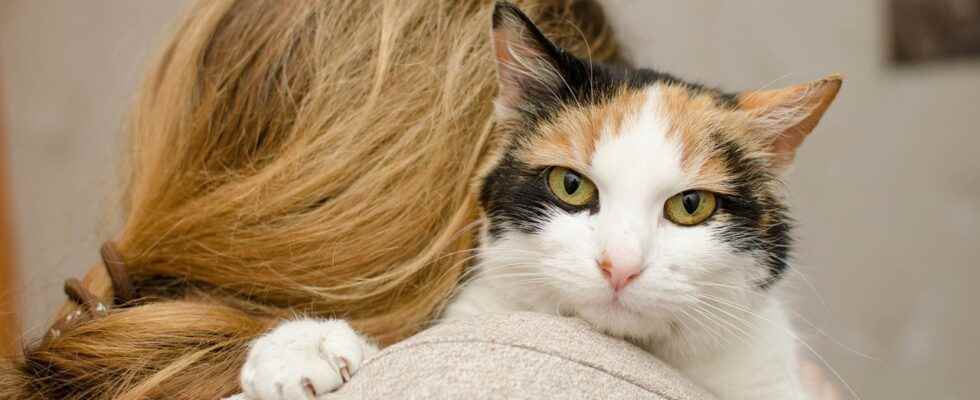They are the darlings of the French. Cats have enjoyed incredible popularity in recent years, to the point that they now outnumber dogs in France. Playful, cuddly, independent and clumsy, these little felines can also be beneficial to their master’s health. In the show Well done for you, Claude Béata, veterinarian, specialist in behavioral medicine and Véronique Lefebvre Desnoëttes, psychiatrist for the elderly, discuss the positive effects of cats on humans.
“When I started my career as a veterinarian, so about forty years ago, there were 10 million dogs for 7 million cats in France”, explains Claude Béata. “Today, we have 15 million cats for 7 million dogs”, he underlines. And for good reason: much more independent than their dog friends, cats have become “practical animals, more in tune with our modern lives”, believes the veterinarian.
Drop in heart rate
But not only. Because these domesticated felines bring a therapeutic aspect. “There are English studies that show that cats can extend the life of their master. This is particularly due to the fact of stroking the fur, which causes a drop in heart rate, and a drop in of cortisol. So cats should be reimbursed by social security,” jokes Claude Béata.
These beneficial effects are not only found in cat owners, says Véronique Lefebvre Desnoëttes, psychiatrist. “At the hospital, cats are ideal. When I was a young psychiatrist, we had an association called “Between cats”, and my psychotic or autistic patients took care of these cats”, she recalls. And to add: “Cats are 100% superior to antidepressant drugs. For example, when you are very old, very tired, in a wheelchair and you have a large, well-fed hospital cat purring in your lap, you see life differently. And indeed the stress decreases, the heart rate decreases”.
Companions of the Last Hours
No doubt for the psychiatrist, cats play “a role of co-therapists”. “When you pet a cat, you receive as much as the person who receives it. We were thus able to show that our brain was invaded by oxytocin, the attachment hormone, that it was invaded by dopamine, the hormone pleasure. Therefore, well-being is immediate”.
“And cats can give us clues too,” adds Véronique Lefebvre Desnoëttes. “Some cats feel sadness and tenderness. But they also feel when a person is going to die. So they give us needles and allow us to accompany patients in a very humane and peaceful way, in their last moments of life”, concludes- she.
